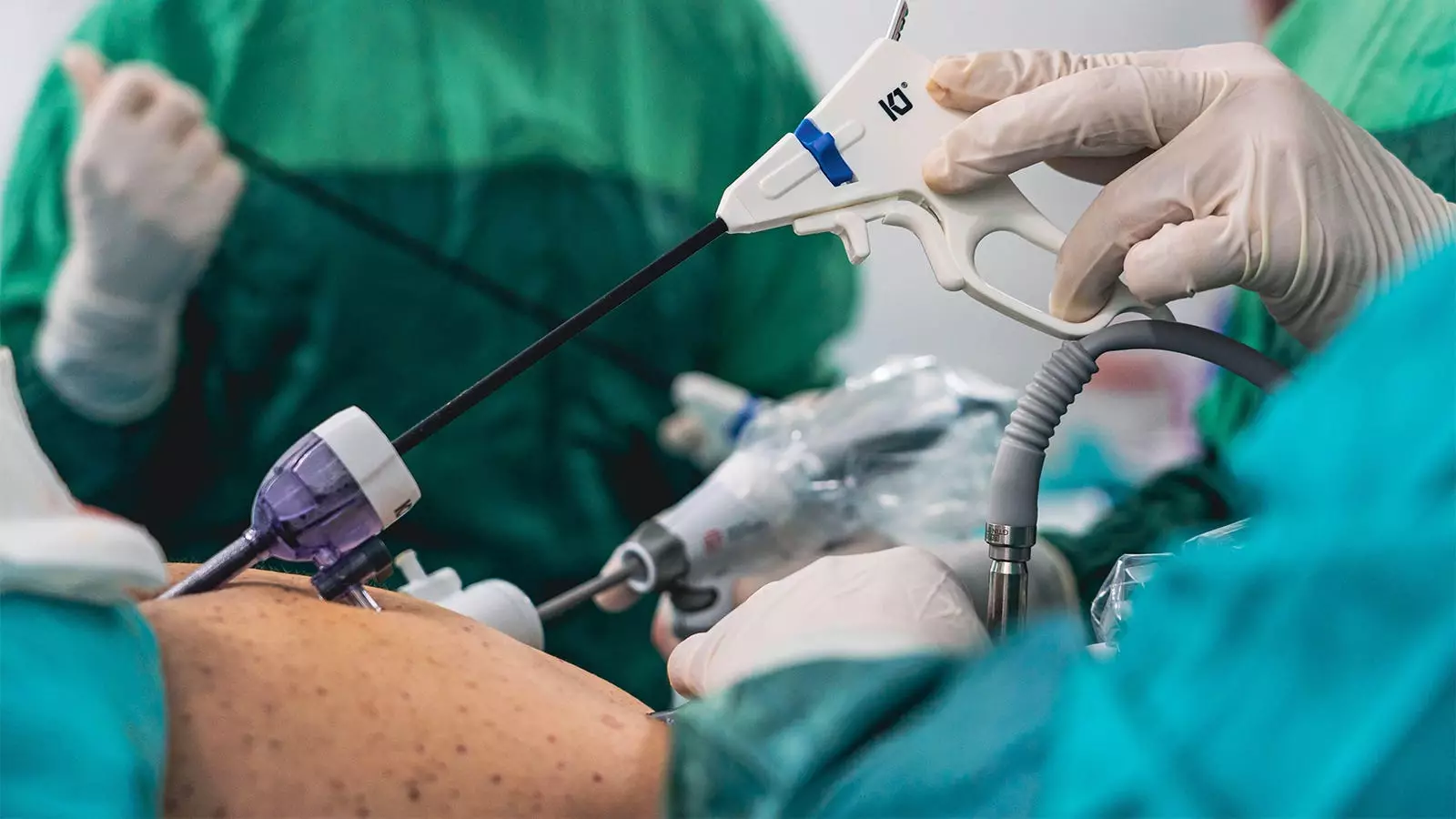Bariatric surgery has emerged as a significant player in managing obesity-related health challenges, particularly among patients with compensated metabolic dysfunction-associated steatohepatitis (MASH)-related cirrhosis. An observational study spearheaded by researchers at the Cleveland Clinic reveals promising long-term outcomes for such patients who undergo this surgical intervention. This revelation extends the horizon of treatment options, suggesting that bariatric surgery may not only aid in weight reduction but also in combating the progression of liver disease.
The SPECCIAL (Surgical Procedures Eliminate Compensated Cirrhosis in Advancing Long-Term) study encompassed 168 patients, primarily middle-aged women, all of whom grappled with obesity and compensated MASH-related cirrhosis. Among these participants, 62 received bariatric surgery, while 106 constituted a non-surgical control group. Results illustrated a stark contrast in the 15-year cumulative incidence of major adverse liver events, which was recorded at 21% in the surgical group compared to 46% in the control group. These statistics translate into an adjusted hazard ratio (HR) of 0.28, indicating a significantly reduced risk of adverse outcomes post-surgery.
Moreover, the study showcased a decline in decompensated cirrhosis incidence, with 16% in the surgical group versus 31% in non-surgical participants (adjusted HR 0.20). These numbers suggest a robust protective effect of bariatric surgery against the progression of liver disease, raising the question of how surgical intervention can alter the disease trajectory for patients with advanced liver conditions.
A noteworthy aspect of the study is the substantial weight loss achieved by surgical patients, averaging 32 kg—approximately 27% of their initial body weight—over 15 years. This sustained weight loss appears instrumental in staving off the progression to end-stage liver disease, fundamentally altering the outlook for individuals facing such dire health metrics. Dr. Steven Nissen, a lead researcher, emphasizes that achieving effective metabolic changes through lifestyle interventions alone often proves challenging, thereby making the surgical option a valuable alternative.
As bariatric surgery gains traction among individuals with severe obesity, its potential to enhance eligibility for liver transplants comes into sharper focus. Severity of obesity often disqualifies patients from transplantation programs due to heightened post-operative risks. Effective weight reduction through surgery could shift this paradigm, making transplantation a feasible option for those operating at the intersection of liver cirrhosis and obesity.
The implication that bariatric surgery may be safely performed on patients with compensated cirrhosis invites further discourse on protocols for surgical interventions. Dr. Wajahat Mehal articulates caution, recommending that such surgeries occur in specialized medical centers with extensive experience in managing cirrhotic patients. This message is critical; it underscores the necessity for medical institutions to be adequately equipped both in knowledge and resources when handling complex cases of obesity intertwined with liver disease.
Nevertheless, the encouraging findings prompt further exploration into optimizing treatment pathways for patients struggling with both obesity and liver dysfunction. Despite slight reservations surrounding the potential biases and limitations inherent in observational studies—such as the dominance of a single racial demographic in the patient group—these results pave the way for broader clinical applications.
While the SPECCIAL study represents a paradigm shift in understanding how bariatric surgery can ameliorate health risks associated with compensated MASH-related cirrhosis, the authors acknowledge the need for continued inquiry. The challenges surrounding randomized clinical trials in this domain highlight the complexity of patient conditions and the multifaceted nature of obesity and liver diseases. Future studies could explore the intersections of lifestyle changes alongside surgical outcomes, providing a more holistic perspective on patient management.
Additionally, the limitations noted regarding the availability of comprehensive lifestyle data further emphasize the need for expansive studies that can assess variables such as physical activity and dietary practices longitudinally. Addressing the apparent racial and ethnic homogeneity of the cohort will also be vital in improving the applicability of these findings across diverse populations.
The findings emerging from the SPECCIAL study resonate with optimism for patients suffering from obesity-related cirrhosis. As more healthcare providers recognize the potential benefits of bariatric surgery in this specific context, it holds the promise of transforming patient trajectories—possibly leading to enhanced life quality and longevity in a demographic that often finds itself at the mercy of compounded health adversities.


Leave a Reply